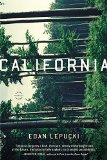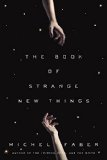Summary | Excerpt | Reviews | Beyond the book | Read-Alikes | Genres & Themes | Author Bio

A palpable buzzing noise fills our heads as we turn the final page of playwright Laline Paull's compelling debut, The Bees. Built on the foundations of a limitless imagination and flawless research, this new slice of dystopian fiction will no doubt leave the reader hankering for more.
Nestled deep within the orchards of an overgrown garden, sits an old wooden hive. Deep within it lives our narrator Flora 717, a worker bee from the sanitation division of her colony. Large, dark and incredibly hairy she is looked upon as ugly, insignificant and even deformed, her destiny: to scrub the honeycomb walls and dispose of the dead. Unlike her fellow sanitation workers, Flora can not only speak but is physically and mentally more powerful than her companions.
Noticing her special gifts, the sacred priestesses that run the hive on behalf of the Queen, offer Flora a way out of the drudgery, putting her to work feeding the newborns in the royal nursery. This experiment becomes the catalyst to a life of excitement for Flora. From the nursery, she battles her way through the ranks, using her strength and smarts as a forager, flying out on dangerous missions in search of nectar. All the same, despite her loyalty, Flora hides an agonizing secret that could ultimately spell disaster for the hive.
This is an utterly unique, gripping novel whose heady mix of dystopia, naturalism and feminist concern will no doubt draw debate. Built on a daring concept, this is a sophisticatedly executed debut novel. The queen is a benevolent, immortal deity who showers eternal love on her obedient servants. Yet life in the hive is repressive and often frightening. Case in point: a masked police force and rambunctious, lewd Drone bees — who rather farcically demand heavy petting and lots of honey.
In addition to the human traits she gives her bug protagonists, Paull vividly and accurately lays out the hierarchy of the honeybee colonies — their dangers, joys, devotion to the queen. These complex societies provide fertile ground for exploring daring themes such as religious fervour, police states, gender politics, the very real threat posed by predators (known as 'The Myriad') and perhaps, most relevant, the toxic pesticides sprayed on crops that decimate the hive's population. Paull clearly knows her topic inside out. This allows her the dramatic license to create some powerful scenes: the mass-murder of the Drones at the hands of their outraged females and the workers finally gathering the courage to stand up and be accounted for.
Readers might see an insect-retelling of George Orwell's 1984, and the scenes of destruction at the hands of the "fertility police" conjure up warped images of Margaret Atwood's The Handmaid's Tale.
Although we never quite lose sight of Flora's "alien" quality as a bee, the beauty of these animals, their precious home, the treacherous task of foraging to keep that alive and the tension whenever a predator passes by, allow us to become thoroughly invested in her story. While certain important details seemed clumsily glued together towards the end, and Flora's far-fetched opportunities in her new role as top forager are plainly used as devices to rush the plot forward to its preordained conclusion, the sheer breadth of her adventures outside the hive, the domestic drama, and various personalities kept me glued to my seat.
With the plight of the honeybees an increasing concern in environmental circles, this book goes beyond the field of fiction and becomes a testament to why we should all do our bit to help.
![]() This review was originally published in The BookBrowse Review in July 2014, and has been updated for the
June 2015 edition.
Click here to go to this issue.
This review was originally published in The BookBrowse Review in July 2014, and has been updated for the
June 2015 edition.
Click here to go to this issue.

If you liked The Bees, try these:

by Edan Lepucki
Published 2015
A gripping and provocative debut novel by a stunning new talent, California imagines a frighteningly realistic near future, in which clashes between mankind's dark nature and deep-seated resilience force us to question how far we will go to protect the ones we love.

The Book of Strange New Things
by Michel Faber
Published 2015
A monumental, genre-defying novel over ten years in the making, Michel Faber's The Book of Strange New Things is a masterwork from a writer in full command of his many talents.
Your guide toexceptional books
BookBrowse seeks out and recommends the best in contemporary fiction and nonfiction—books that not only engage and entertain but also deepen our understanding of ourselves and the world around us.